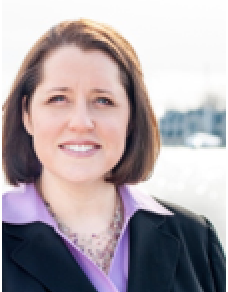Socrates Program: Winter 2022
Socrates Winter Seminars
Following the successful launch of hybrid seminars (meaning in-person and virtual) this past summer, we will be offering hybrid seminars again this coming President’s Day Weekend, February 18th-21st!
The seminars will include 3, 4-hour sessions on Saturday and Sunday afternoons, and Monday morning. The in-person seminar tuition is $2,500, which includes enrollment, materials, and meals. Tuition does not include travel or lodging. The virtual seminar tuition is $250. If you would like to apply for a scholarship, please do so here. Limited scholarships are only available to in-person participants by application.
We have lined up three fantastic seminars with new and veteran moderators.
Please see below for descriptions of seminar offerings:




The Supreme Court and Social Change
Beginning with John Marshall, iconic thinkers and personalities have been integral to shaping the role of Unites States Supreme Court. Through the work of these great jurists, the judicial branch has become a powerful ballast to the legislative and executive branches. Over the centuries Chief Justices such as Taney, Taft, Warren, and Roberts and pivotal dissenters the likes of Harlan, Scalia, and Ginsberg have battled over the greatest tensions of their time and have changed the future of the nation. Have these great minds and their significant decisions balanced the powers as the Founding Fathers envisioned? Has the Court overstepped its bounds in the battles over social mores and norms and sowed the seeds of a perilous, and more politicized future? This seminar will examine key decisions that have shaped our country and our lives and explore the future social changes that could fall to our highest court.
Moderator: Theodore B. Olson, Partner at Gibson, Dunn, & Crutcher, will be co-moderating this seminar with Melissa Murray, Professor at NYU School of Law.
The Future of Warfare
Technology continues to advance and proliferate with impacts on our daily lives and on the geopolitical sphere. The combination of cyber, data science and an expanding digital canvas creates opportunities for corporate and national competitors to exert new forms of influence to gain power and control people at an individual level. Will democratic governments be able to effectively and ethically counter these threats at scale? Can they overcome disinformation campaigns that obfuscate the truth and undermine the credibility of political and social institutions? Can they counter the theft and weaponization of data that prevents financial, economic and military superiority? Will future conflicts be fought without actual warfare, yet with devastating consequences for humanity and civilian populations?
Moderator: Cara LaPointe, Senior Fellow at the Beeck Center for Social Impact & Innovation at Georgetown University. Dr. Maegen Nix is the Principal at the Johns Hopkins University Applied Physics Laboratory (JHUAPL).
Critical Race Theory and James Baldwin
James Baldwin was one of the preeminent writers and activists of the twentieth century. His books, essays, and talks had a profound influence, changing millions of hearts and minds during the Civil-Rights Era, and inspiring a cultural awakening that led to policy change. Baldwin’s writings and talks are as resonant today as they were 50 years ago. The United States is now experiencing a major protest movement that “may be” the largest in U.S. history, according to the New York Times, focusing on race, equal rights, and human rights. Baldwin’s words offer urgent lessons for our time as well as his. He articulates how the United States might “become a nation” and how we might “achieve our identity, our maturity, as men and women,” as he phrased it, and finally fulfill the ideals of freedom and equality. Each session focuses on selections of Baldwin’s writings that raise critical questions about the possibilities and limits of social change; the power of racism; and the influence of emotion and affect on social and political structures.
Moderator: John Stauffer is Professor of English and African American Studies and former chair of American Studies at Harvard University. He is the author or editor of 20 books and over 100 articles focusing on antislavery and/or photography.
Health and Safety Guidelines for In Person Events
The Aspen Institute is committed to creating a safe seminar experience for all participants. Please see our COVID-19 safety guidelines here.
We are monitoring new variants and caseloads and are prepared to convert to fully digital or adjust the portion of the online content to meet health and safety guidelines. In addition, the Aspen Institute guidelines will be regularly updated to meet the latest health and safety guidance of the CDC and local authorities. If you anticipate any issues or have any concerns, please contact us at socrates@aspeninstitute.org.